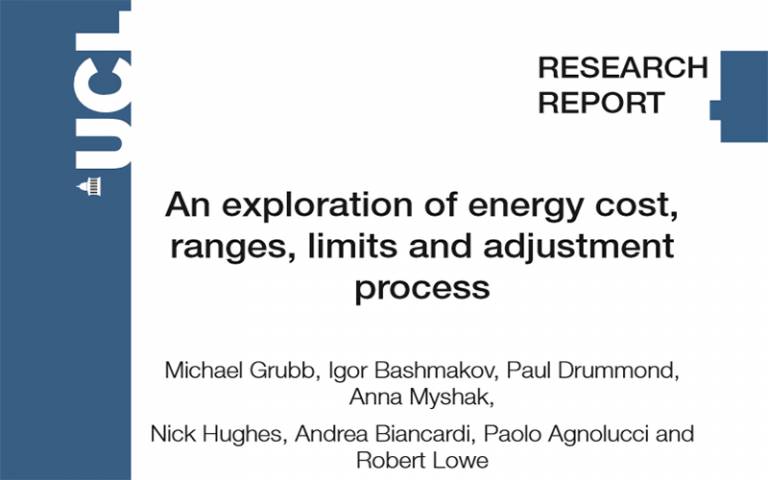New report on energy expenditure published by ISR
23 March 2018
A report into energy system expenditure levels has been published by the UCL Institute for Sustainable Resources.

A report into energy system expenditure levels has been published by the UCL Institute for Sustainable Resources.
Funded by the Institute for New Economic Thinking (INET), the report develops a new dataset of national energy expenditures covering more than 30 OECD countries since the early 1970s.
The report, ‘An exploration of energy cost, ranges, limits, and adjustment process’, finds strong evidence to support a constrained range of long-run energy expenditures relative to GDP across time and countries.
Potential policy implications discovered in this research include:
- Energy systems have a large capacity to adapt to higher prices and other pressure given time.
- Practical policy can only deliver such transformations through the use of multiple policies spanning energy efficiency, environmental pricing, and direct investment in innovation and infrastructure.
- The normal economic logic that high environmental pricing should be the best instrument to drive transformation may need inverting: rather energy efficiency (in particular) can be viewed as a social policy, of which the environmental co-benefits will be undermined by rebound effects, unless it is accompanied by rising energy prices, so as to keep overall costs within the Bashmakov-Newbery constant.
Professor Michael Grubb commented:
There has been growing speculation over the past decade about the hypothesis that the share of national income that is spent on energy is a significant macroeconomic factor, and that countries tend to gravitate back towards a relatively narrow range of energy expenditure. This report presents the most extensive database yet developed to examine this question, and suggests indeed that national energy expenditures across market economies have tended to be in the range 8+/-2%, and that expenditures outside this range lead to reactions which bring it back, though with time lags measured in decades for energy systems to fully react. We argue that this has significant policy implications”
To read the report in full click the link below:
Acknowledgements
Small grant financial support from the Institute of New Economic Thinking is gratefully acknowledged, along with support from the UK Energy Research Centre.
 Close
Close

